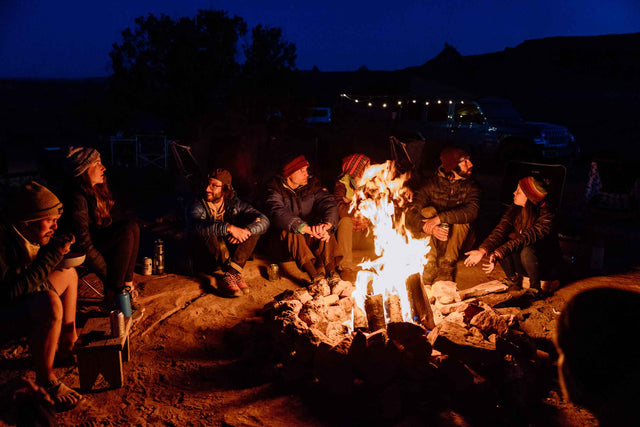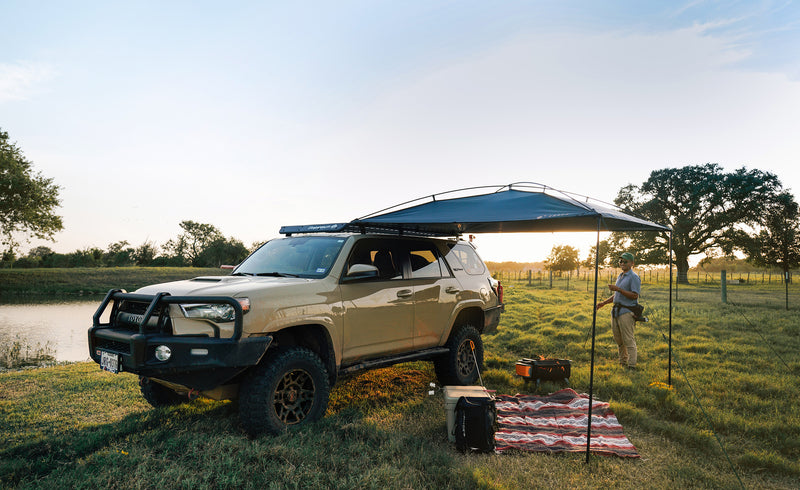

"I would rather help people be healthy and happy, and be able to adventure and do the things in life that they really want to do, and not just have to watch it on YouTube."
—Angela Siatta
Filmmaker’s Notes:
After spending the morning with Dan, we busted it toward Sedona to meet up with Angela that evening. The landscape that flew by us on the drive through Arizona was like something from another world, the topography changing dramatically with every hill we climbed in the van. We started noticing huge cacti as we got deeper into the desert, until they seemed to be surrounding us, and half an hour before Sedona we dropped into a canyon that seemed so incredibly scenic that it felt ridiculous, or unreal. There are a lot of beautiful places in the US that get talked about on the list of best road trips, but Arizona jumped a few spots higher on my personal list as we drove through that canyon.
We went into meeting Angela a little blind — most of the other subjects of this project so far I had chatted with beforehand, sometimes just a quick phone call — so it took us all a few moments to warm up to each other, but once we did, we realized that Angela was one of the most open and honest people we had met. We started our conversation with some questions about the last year, and what had unexpectedly spurred Angela towards an interest in a life on the road.

Read the Interview
Angela:
So part of actually how I got into doing this was freaking COVID. I moved here (Arizona), obviously, for the outdoors, and I’d been burned out on nursing. Traveling abroad has always been the thing that kind of helps fill me up, but then COVID happened, and I couldn’t travel abroad anymore. I had a beautiful trip to Peru planned, and I couldn’t go.
That sparked more of wanting to explore even more of what I call “my backyard”, but to do it in a way that wasn’t so commercialized, you know, where I had to stay on the usual tracks. I wanted a vehicle that I could overland in, basically take off off road. The great thing about Arizona is it’s wide open and vast and beautiful. And there’s a lot of places where you can do dispersed camping or boondocking, so I decided that what I wanted is a vehicle that would allow me to do that.



Richard:
Is that something you’d ever done before you got this truck?
Angela:
A little bit — I was married previously, and we had had a travel trailer, and we had done some RV stuff, and then we started to do some ditch camping. It’s nice to be able to be out when you go camping and be on your own and explore the area that you’re in. That was the appeal, and with Arizona being so big, there’s just so much. This is Red Rocks, and it’s beautiful, but if you go an hour east, there’s plateaus and big pines and lakes. Then you go north, and there’s a ton of big mountains. There’s just so much stuff around me that I get to explore, and find adventure.

For me to be able to get out in nature and really suck up that feeling, it fills my cup back up, and it allows me to be a nurse and do the things that I need to do when I am working.
And so for me to be able to get out in nature and really suck up that feeling, it fills my cup back up, and it allows me to be a nurse and do the things that I need to do when I am working. It makes me feel grounded and part of the amazing vastness of our world, and the community that I live in.
Richard:
Is there some sort of spiritual dimension to you about this kind of adventure? Or is it just fun?
Angela:
There’s definitely a spiritual dimension, for sure (laughs). You know, for me, a lot of it has to do with my job — my job is soul sucking, and my job is hard.
Richard:
Was nursing as “soul sucking” for you before COVID?

Angela:
Not as much as it is now… but our healthcare system is broken, unfortunately. I’m actually trying to get away from bedside nursing and start my own business. I want to be a holistic nurse coach, and help people put health back into their health care, and actually get healthy again, instead of the continuous sick cycle. And I think that would feed my soul and give to the community in a way that resonates with me, and is important to my moral compass. I would rather help people be healthy and happy, and be able to adventure and do the things in life that they really want to do, and not just have to watch it on YouTube.



While we talked, we helped Angela set up her MOON Shade, which took some focus in 20+ mile per hour winds. We swapped stories about hiking the Grand Canyon and other trips we’d either done or wanted to do, and Angela shared some of her early life experiences that helped shape her perspective.
Angela:
The first part of my life was all about death. I lost my brother when I was 14 years old, in a car accident. My mom died two years later when I was 16. And then, I slowly became a nurse. It took me a long time to become a nurse. And then when I did, I worked ICU and then became a donor nurse… I met with families when their loved ones are dying and asked for organs — I did that for a year. I worked in the same ICU where my mom and my brother died. My whole life revolved around that.


My father was eight months from retirement when he died. He never enjoyed his fucking life. He was always saving the mighty dollar and always saying, “when I retire, when I retire”, and he never got to retire, he dies. That inspired me to say, I’m going to start living my life. I started traveling, and traveling really sparked that for me.

This is more of a new life for me, I want to be on the other side, instead of death. I want to be on the side of life, and I want to live my life to the fullest — I’m all about the quality of my life, not the quantity of what I have left.
This is more of a new life for me, I want to be on the other side, instead of death. I want to be on the side of life, and I want to live my life to the fullest — I’m all about the quality of my life, not the quantity of what I have left.
Henry:
Things like that remind me of why this is so special — I had an opportunity a while back to work on a sports documentary that was my dream job, and it felt like success… and I realized working on it, that it was just like any other job I’ve ever had. And the lesson I learned from that was making a documentary, whether it’s a basketball team or a MoonShade, it’s an opportunity to get to know someone in a deep way, to tell someone’s story. I hope this is a reflection for you that you’re doing the thing that you sought out to do. Thank you for sharing that.
Surprisingly, we found ourselves having essentially the same conversations — stories of pain and loss and adventure and freedom.
I looked over at Richard as Angela spoke, and I could tell that we were both choking up with emotion. The courage and conviction that was evident in her life and story was something that stayed with us as we left Angela to head towards where we would set up our camp. That night, we met a nomad couple that lived out on the BLM land where we were camping, and we shared a fire. The woman told us that she was a masseuse that walked on people’s backs, and they were both funny, happy people that fit more easily into the stereotype of the “alternative lifestyle”, a big contrast to Angela the ICU nurse. But surprisingly, we found ourselves having essentially the same conversations — stories of pain and loss and adventure and freedom. We were starting to understand the connective tissue that linked all the people we’d met so far, and it felt like a revelation. In the morning, we would leave for our next destination, the mythical place in the desert that we’d been looking forward to ever since leaving Texas: Joshua Tree.


